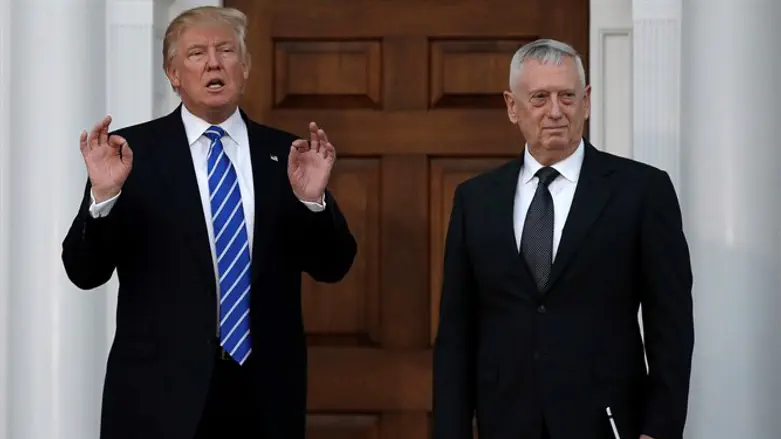
U.S. President-elect Donald Trump confirmed on Thursday night that he intends to nominate retired General James Mattis as Defense Secretary.
Trump made the announcement during a post-election victory rally in Cincinnati, Ohio, and told the crowd that he would make the nomination official next week.
“We're not announcing it until Monday so don't tell anybody,” he joked.
With the announcement, Trump confirmed an earlier report in The Washington Post, which cited people familiar with the decision.
Immediately following the publication of that report, however, Trump spokesman Jason Miller tweeted, “No decision has been made yet with regard to Secretary of Defense.”
Mattis, 66, retired as the chief of U.S. Central Command in spring 2013 after serving more than four decades in the Marine Corps. He is considered one of the most influential military leaders of his generation, serving as a strategic thinker while occasionally drawing rebukes for his aggressive talk.
To take the job, Mattis will need Congress to pass new legislation to bypass a federal law stating that defense secretaries must not have been on active duty in the previous seven years.
In 2013, Mattis warned that the sanctions and diplomatic efforts to stop Iran from gaining nuclear capabilities were not working.
Despite the comments on Iran, Mattis has worried some in Israel due to his history of troubling statements vis-à-vis the Jewish state.
Speaking at a gathering of the Aspen Institute in 2013, Mattis gave his emphatic backing for Secretary of State John Kerry’s “valiant” efforts to reach a two-state solution, saying that the foundation of a Palestinian state was of paramount importance for not only Israel but the United States.
In addition, Mattis slammed Israeli control of Judea and Samaria as “unsustainable”, warning that Jewish “settlements” were liable to turn Israel into an “Apartheid” state.
At the same time, The Washington Post noted that during his time in the military, Mattis made a concerted effort to reach out to his Israeli military counterparts.
Steven Simon, who worked with Mattis when he served on Obama’s National Security Council, said Mattis made frequent stops in Israel during trips to the region, part of an effort to encourage the Jewish state and its Arab neighbors to work together to counter Iranian influence.
“They respected Mattis because they saw him as a straight shooter and a good listener,” Simon said of the Israelis and Arabs.